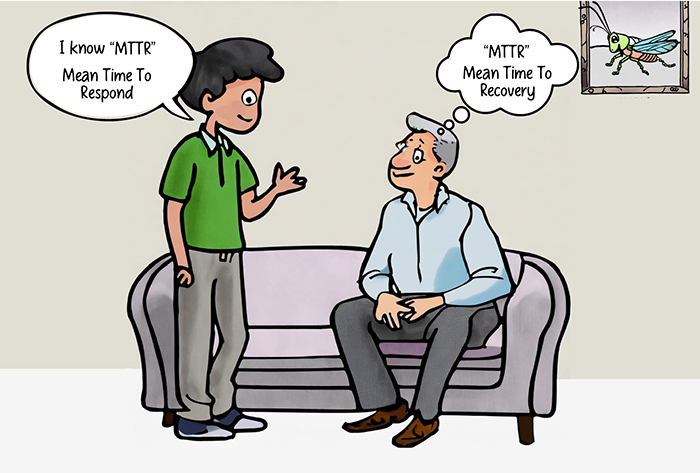Young folks nowadays — especially those involved in that newfangled “cybersecurity” — would have you believe that MTTR stands for “Mean Time to Respond.” MTTR, they say, is the average time it takes after a cyberattack to resume operations.
Well, I’m here to tell you that we increasingly gray-bearded networking old-timers were talking about MTTR when most so-called “cybersecurity professionals” were knee-high to a grasshopper. (See what I did there?)

To us, “MTTR” meant “mean time to recovery,” the average time it took to restore a service after a failure. And after 20 years at Infoblox, I know a little about reducing MTTR. We’ve worked tirelessly to enable our customers to build DNS and DHCP infrastructure that runs nonstop.
Sure, we support important protocol resiliency features, including anycast DNS and DHCP Failover. Both are critical tools in designing DNS and DHCP infrastructure that can withstand the failure of a single DNS or DHCP server.
In addition, we support VRRP-based high availability, which allows our customers to deploy pairs of physical or virtual appliances that not only provide resiliency in the case of a failure of one of the pairs but also support software upgrades with almost no interruption in service.
But our biggest innovation was the Infoblox Grid. With a well-designed Grid, a customer’s DNS and DHCP infrastructure can even withstand the complete loss of the Grid Manager in what our U.S. government customers colorfully refer to as a “smoking hole scenario.” The Grid Manager is the central point of administration for DNS, DHCP and IP Address Management, so it clearly plays a critical role in the Grid. In the unlikely event that the Grid Manager loses function completely, a customer can simply promote any Grid Manager Candidate to become the new Grid Manager. The former Grid Manager Candidate will resume operation with the last good configuration synchronized from the old Grid Manager. And even without a Grid Manager, DNS and DHCP services continue uninterrupted before the promotion.
Together, these capabilities let our customers build DNS and DHCP infrastructure that will run, literally for years, with no interruption in service.
So yeah, MTTR. We know MTTR.








